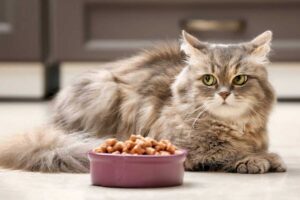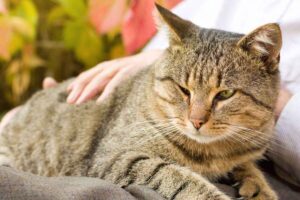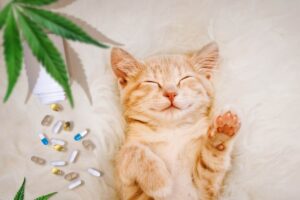Can Cats Drink Lactose Free Milk? – Comprehensive Guide

Have you ever seen your cat double-take at your cereal bowl with longing eyes? You must have seen dozens of videos online where cats are obsessed with creamy beverages and purring with delight. But hold your horses! Cats and dairy products are not a match made in heaven and in fact, it can lead to a lot of health problems.
Now, I am sure your mind is buzzing with the question, can cats drink Lactose Free Milk?
Is it a safe option for your cat? Well, the simple answer is yes. However, it depends on your cat’s preferences and how sensitive they are. There are many things that you need to consider so don’t just start rolling and read the guide first to make an informed decision.
Understanding Lactose Intolerance In Cats
When cats reach adulthood, they lose the capacity to digest milk after weaning. They become lactose intolerant and even a tiny sip can create havoc. But why does this happen? Cats are obligate carnivores meaning they need more meat than milk to survive and thrive.
As a pet owner, how can you find clues that cats are lactose-intolerant? It’s simple, you need to be on the lookout for these symptoms.
- Tummy ache
- Vomiting
- Diarrhea
- Lethargy
- Nausea
If your cats are showing these signs after consuming milk it means that they are lactose intolerant. It’s a better option to not give them any dairy products to ensure your cat stays healthy.
What is Lactose Free Milk and How Does It Work?
Lactose-free milk is specifically created for cats who are lactose intolerant. So, how does it differ from conventional milk?
Lactaid (Lactose Free Milk) includes lactase, an enzyme that breaks down lactose (milk sugar) into simple sugar. These simple sugars like glucose are easy to digest and don’t cause an upset stomach. We call this process lactose hydrolysis.
But can cats drink lactose-free milk?
The good news about Lactose Free Milk is that it is 70-100% free from lactose and makes it easier for your cat to digest. So yes, cats are free to consume it. However, you need to be sure that your cat’s digestive system is accepting the lactose free milk and that it doesn’t lead to discomfort or pain.
Can Cats Consume Lactose Free Milk Safety?
Now that we understand the phenomena of lactose intolerance in cats and how lactaid is formulated. Let’s weigh the pros and cons to understand it in detail.
Benefits
- It has a lower lactose level and is easy to digest.
- There is a relatively low chance that it will cause stomachaches or other digestive problems.
- It strikes a perfect balance of vitamins and minerals.
Risks
- Although it has a small amount of lactose it can still cause issues for sensitive cats.
- Milk has high fat content and yes you have guessed it right it can cause weight gain.
- It can lead to the feeling of being full, which may keep your cat from eating other nutritious foods needed for its development.
A creative way of using Lactose Free Milk can be to mix it with regular dry cat food, which gives you the best of both worlds. The nutrition and protein from the dry food and the moisture and vitamins from the Lactose free milk are the ultimate combo.

Alternatives To Lactose Free Milk For Cats
So if your cat is not a big fan of lactaid or you don’t want to expose them to the potential dangers, here are some alternatives.
- Water is the best hydration hero that will help your cat stay hydrated and be easy to ingest without causing any pain or discomfort
- Chicken or bone broth is filled with flavor and is enough to keep them hydrated. They have all the nutrients and keep your cat fit and healthy.
- Goat milk and other commercial options like Whiskas cat milk which is 98% lactose-free are another alternative that helps your cat stay hydrated and fit.
FAQs
Q. Do cats need milk in their diet?
A: Adult cats don’t need milk in their diet and they don’t have to consume it. Although it is a safe option for your cat, it can still expose them to health problems so it is better to avoid it. Why risk it when you have better options, right?
Q. What should I do if my cat accidentally consumes dairy products?
A: You have to monitor your cat for a while and see if they are showing any symptoms or signs of digestive upset.
Q. Is there a specific age when cats become lactose intolerant?
A: Typically, cats become lactose intolerant after weaning when they lose the enzyme lactase. It happens when they are around 8 weeks old. It’s better to avoid giving your cat lactose free milk or dairy products when your cat suppresses that age.
Conclusion
While it does feel like cats and milk have the purr-fect relationship on the internet, it’s important to remind yourself that lactose free milk might not be the best option for your cat. You can resort to water and a nutritional cat diet to ensure they are fit and hydrated.


